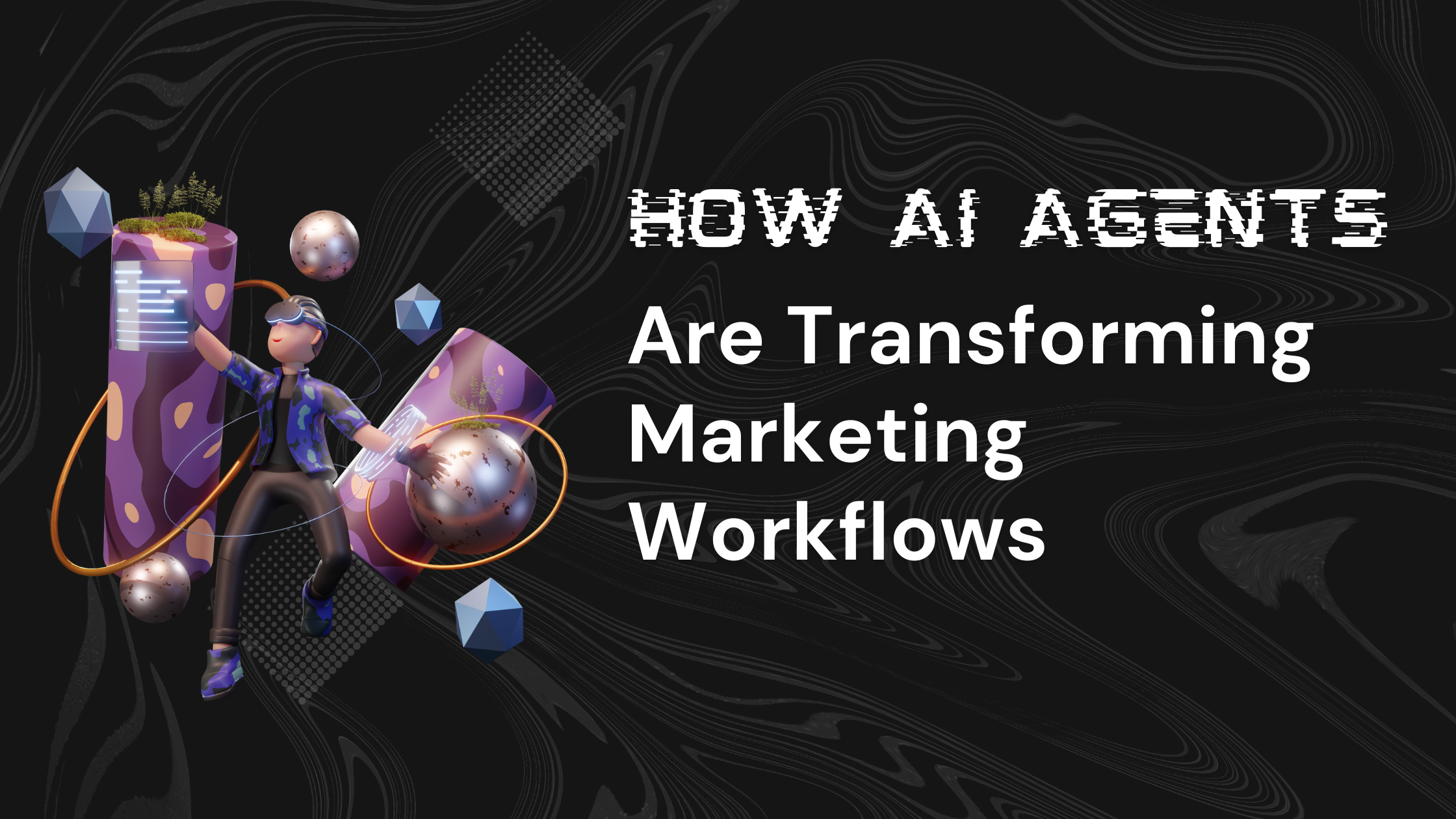
The marketing landscape is in constant flux, but perhaps no force is reshaping it as profoundly as the rise of AI agents. These intelligent, autonomous software programs are moving beyond simple automation, performing complex tasks, learning from data, and making decisions with a level of precision and speed previously unimaginable. The result? A seismic shift in marketing workflows, freeing up human marketers for strategic thinking and unleashing unprecedented levels of personalization and efficiency.
So, how exactly are AI agents revolutionizing the way marketers operate?
Beyond Automation: The Power of Autonomous Decision-Making
Traditional marketing automation tools follow pre-programmed rules. If X happens, then do Y. AI agents, however, take this a significant step further. They can:
- Perceive and interpret data: AI agents continuously analyze vast datasets – from customer Browse behavior and purchase history to social media sentiment and competitor activity – to understand context and intent.
- Reason and make decisions: Unlike simple bots, AI agents can weigh different options, predict outcomes, and choose the "next best action" based on predefined goals and real-time insights. This allows for dynamic adjustments to campaigns and strategies.
- Execute actions across systems: AI agents aren't confined to a single platform. They can initiate actions across your entire marketing stack, whether it's adjusting ad bids on Google Ads, generating personalized email content, or updating CRM records.
- Learn and adapt: Through continuous feedback loops, AI agents learn from the outcomes of their actions, improving their performance over time. This self-optimization leads to compounding improvements in marketing effectiveness.
Key Areas Where AI Agents Are Making an Impact:
-
Hyper-Personalization at Scale:
- Beyond segmentation: Instead of broad audience segments, AI agents enable true one-to-one personalization. They dynamically adapt content, offers, and timing based on individual behaviors and preferences.
- Dynamic content generation: From personalized email copy and product recommendations to tailored ad creatives and website experiences, AI agents can generate variations of content on the fly, ensuring maximum relevance for each user. Imagine an AI agent recommending complementary products based on a customer's specific purchase history, or tailoring a website experience in real-time as a user browses.
-
Optimized Campaign Management and Execution:
- Automated bidding and budget allocation: AI agents can continuously monitor ad campaign performance across platforms (like Google Ads and Meta) and automatically adjust bids and allocate budgets to maximize ROI. They can identify underperforming creatives and pause them instantly.
- A/B testing on steroids: What once took days or weeks for manual A/B testing can now be done in hours. AI agents can generate and test countless variations of headlines, ad text, and visuals simultaneously, quickly identifying the most effective combinations.
- Anomaly detection and real-time adjustments: AI agents can flag unusual performance dips or spikes, allowing marketers to intervene quickly or empowering the agent to make immediate adjustments.
-
Streamlined Content Creation and Repurposing:
- Accelerated content generation: AI agents can assist in drafting blog posts, social media updates, ad copy, and even video scripts, significantly reducing the time spent on initial creation.
- Automated repurposing: A single long-form piece of content, like a webinar or an in-depth article, can be automatically transformed into multiple bite-sized assets for different channels – a LinkedIn thread, several social media posts, email snippets, or even short video scripts.
- Brand consistency and quality assurance: Trained AI agents can review content for brand voice, grammar, tone, and formatting across hundreds of assets in minutes, ensuring consistency and flagging inconsistencies.
-
Enhanced Lead Management and Qualification:
- Intelligent lead scoring: AI agents analyze behavioral data, firmographics, and engagement patterns to automatically qualify inbound leads, identifying those with the highest buying intent. This ensures sales teams focus on the most promising prospects.
- Automated lead nurturing: Based on lead scores and behavioral triggers, AI agents can initiate personalized nurture sequences, sending relevant content and offers at optimal times.
-
Proactive Market Research and Competitive Analysis:
- Competitor monitoring: AI agents can proactively track competitor blogs, feature releases, pricing changes, and press releases, providing real-time insights into market shifts and competitive advantages.
- Sentiment analysis: By listening to customer feedback across social media and support channels, AI agents can detect early churn signals, identify popular feature requests, and gauge public sentiment about a brand, enabling proactive responses and messaging adjustments.
The Future of Marketing: Human-AI Collaboration
The widespread adoption of AI agents doesn't signal the end of human marketers. Instead, it heralds a new era of human-AI collaboration. Marketers will increasingly shift their focus from repetitive, manual tasks to higher-level strategic thinking, creative concept development, building customer relationships, and overseeing the ethical deployment of AI.
AI agents are not just tools; they are becoming integral members of marketing teams, operating autonomously within defined parameters and continuously learning to deliver better, more personalized, and more efficient marketing outcomes. Those who embrace this transformation will not only gain a significant competitive advantage but also unlock unprecedented levels of creativity and impact in their marketing endeavors.